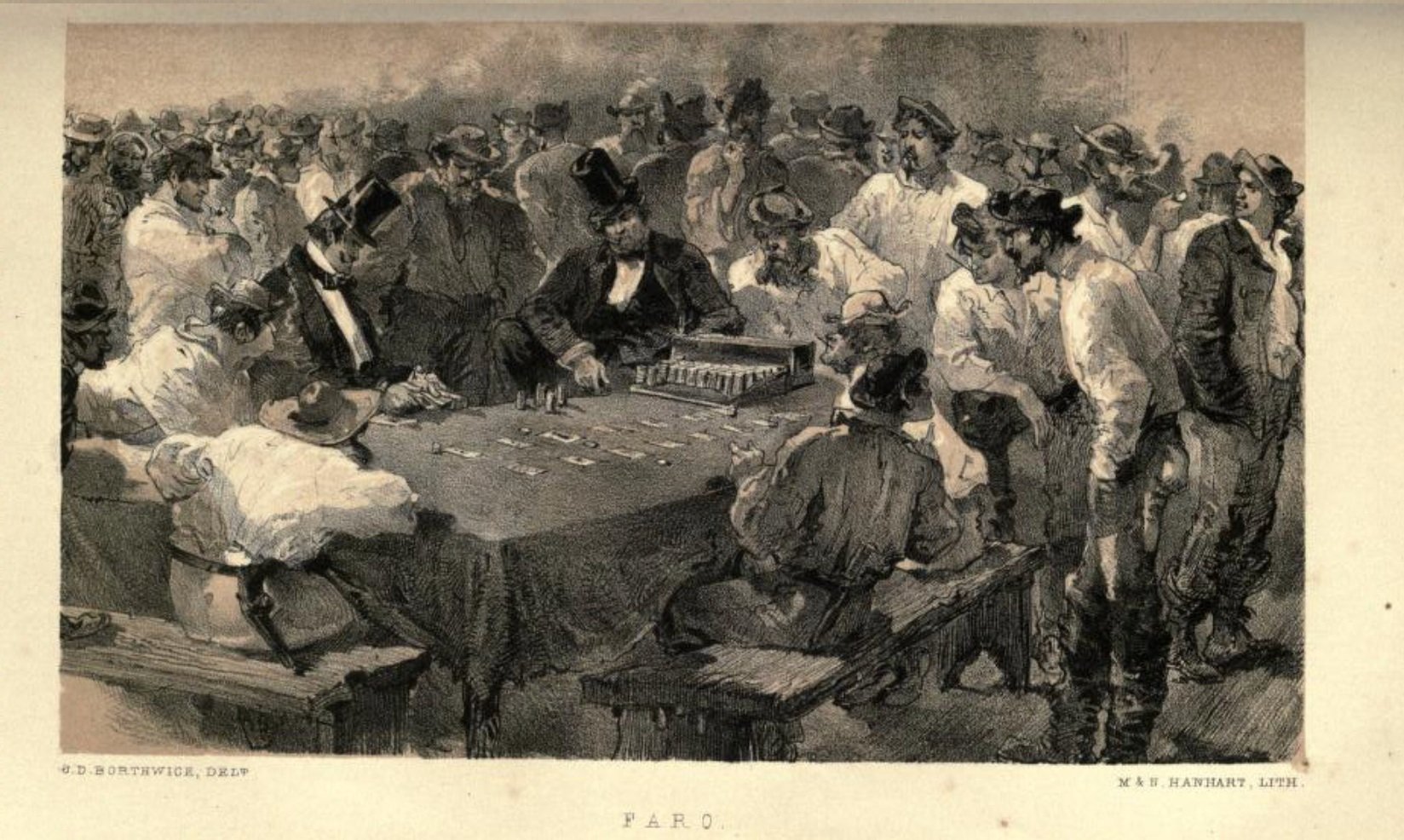“Sundays in San Francisco,” Indeed
One of the recurring and central themes of my project, “Resisting Reform,” is the bottomless well of optimism many reformers in San Francisco had anytime some form of reform was enacted. Most commonly this was in the context of a law by the local or state legislatures or an order by the police. I cannot fully explain why so many humans from the first 70 years of the city’s American history insisted “this time” was the end of whatever vice was the object of reform.
A perfect example of this can be seen almost from the beginning of the city’s history, in 1851. Admittedly, the pattern of reform failure hadn’t been established yet, but there is still a striking degree of naïveté in this example.
SUNDAY IN SAN FRANCISCO. — There was a time when the Sabbaths in San Francisco were the days especially devoted to drunkenness, rioting, gambling, and disorders of every character. That time, however, has passed. The city ordinance forbidding gambling on Sunday is now fully respected, at least so far as public gaming is concerned, and the tables in our public saloons which were formerly devoted to the fickle goddess, are now found covered with newspapers from all parts of the world, and the laboring man whose weekly toil is ended, can now devote himself to intellectual pursuits, instead of wasting his hard earnings in the useless pursuit of wealth too easily acquired. The clerks and tradesmen spend the day in recreation, and innocent amusement, the various avenues leading from our city are thronged with men on horseback, and quiet and peace reign in San Francisco.
The holy music of church choirs greets our ears as we pass the houses devoted to the worship of God, and the strains of pious eloquence, break from the lips of preachers of the Holy Word, and fall, soft as the gentle snow flake falls upon the sod, on the ears of attentive listeners. Upon the Plaza, a clergyman who deems it his duty to address the whole public, holds forth to large audiences, and instils into their minds and hearts the blessed promises of the Book of Life. Many go to church, many remain at home, and many roam over the hills and through the groves — God's first temples."
Heaven on earth accomplished with the passing of an anti-gambling ordinance. It’s hard to believe that this was not satire. But it appears to me to be a genuinely held belief that the foregoing description reflected the author’s reality. You can see and read the article for yourself here.
The image associated with this post is from Three Years in California by John David Borthwick, published in 1857. As the title suggests, it was an account of his travels through California during the Gold Rush era that covered in some detail many of the leisure activities miners enjoyed, including gambling games such as Faro.
